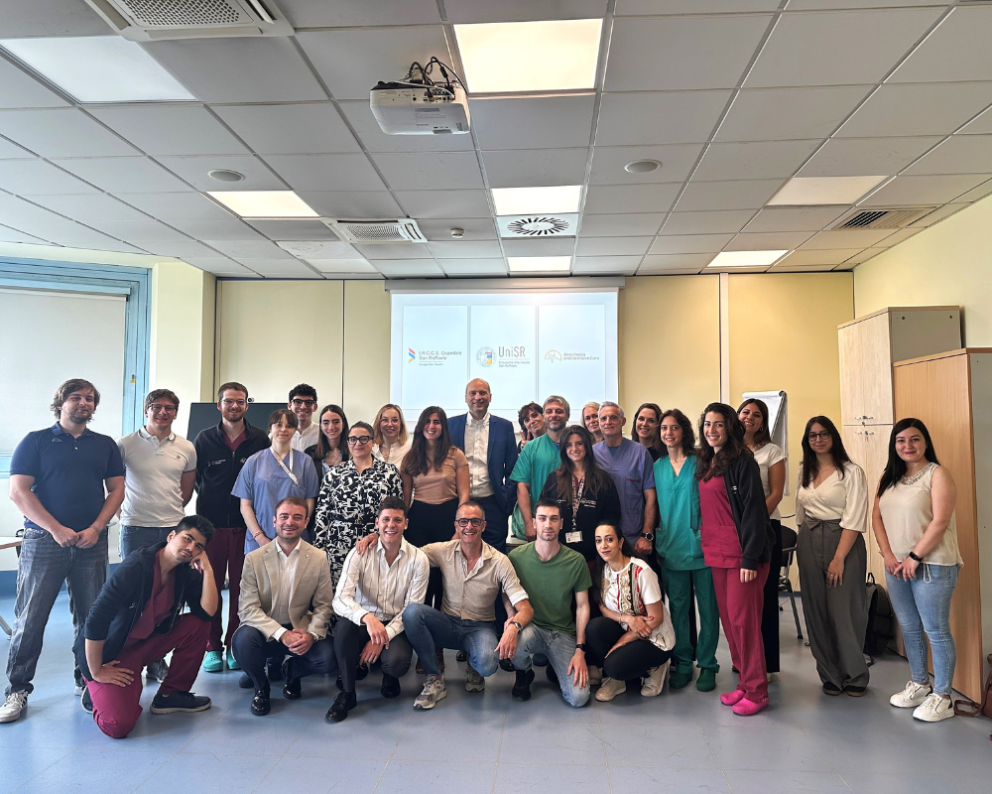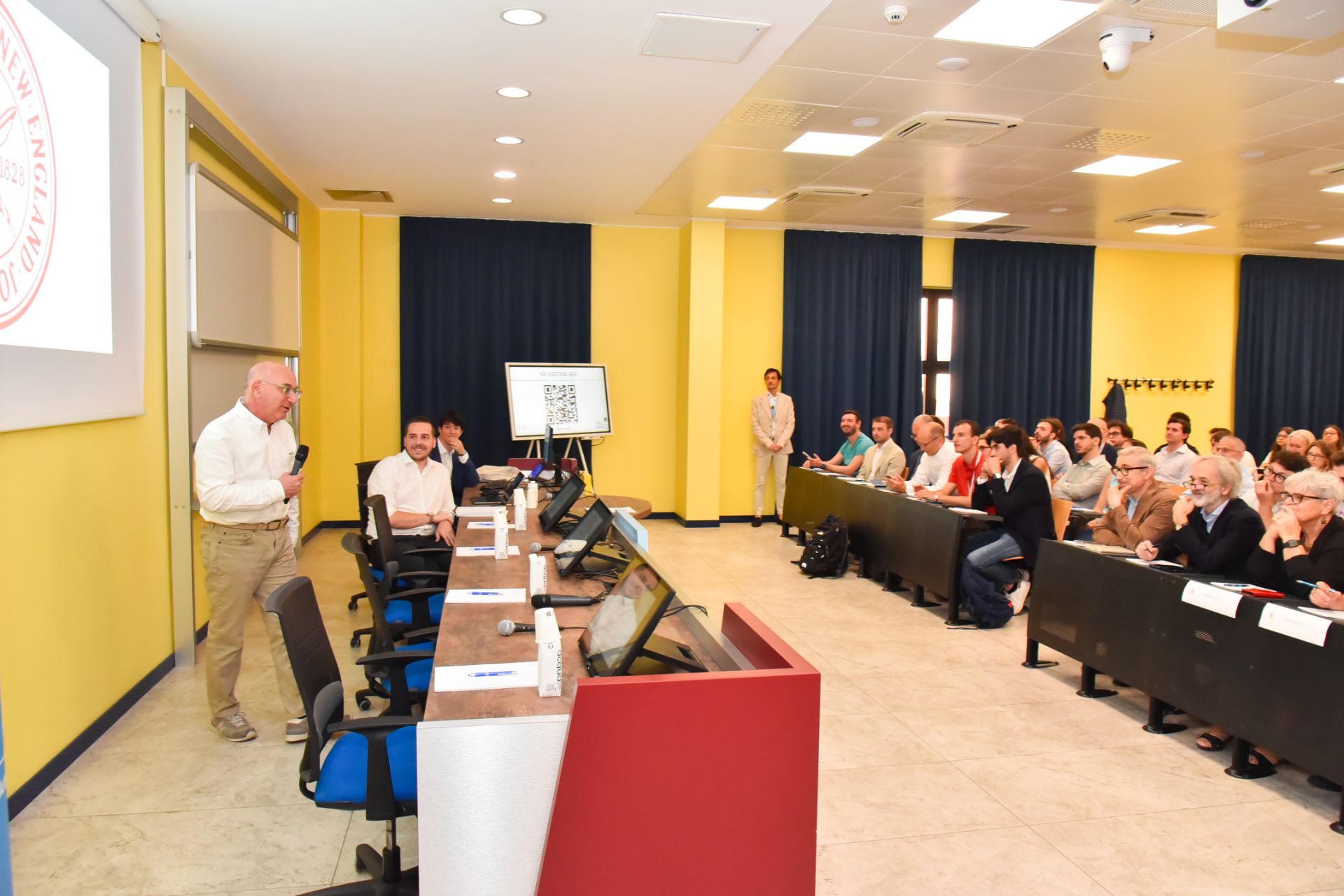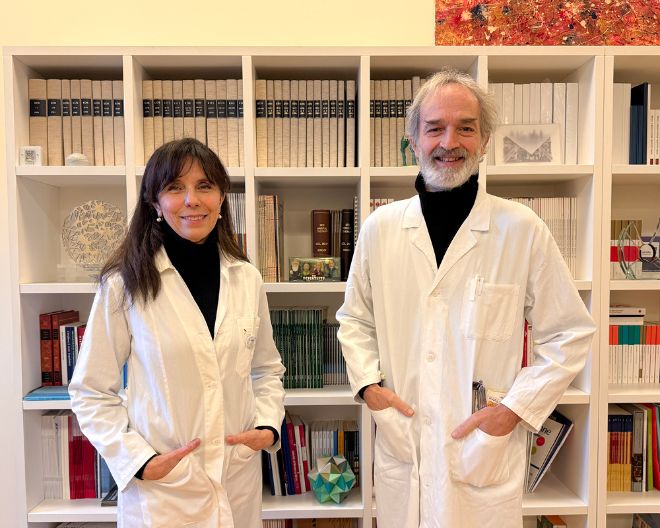Cardiac Surgery: San Raffaele Study Revises Blood Transfusion and Healthcare Resource Use

A multicenter study published today in the prestigious journal The New England Journal of Medicine shows that acute normovolemic hemodilution does not reduce the need for allogeneic blood transfusions in patients undergoing cardiac surgery with cardiopulmonary bypass.
A large, randomized international clinical trial coordinated by IRCCS San Raffaele Hospital has challenged the effectiveness of a technique previously considered useful for reducing the need for allogeneic blood transfusions in adult patients undergoing cardiac surgery with cardiopulmonary bypass (CPB): acute normovolemic hemodilution, also known as ANH.
This procedure involves withdrawing part of the patient's blood shortly before surgery and temporarily replacing it with fluids (such as saline or colloids), in order to maintain constant blood volume. The idea behind the technique is that by making the blood more "diluted," any losses during surgery will result in a smaller actual loss of red blood cells.
However, the study results, published today in The New England Journal of Medicine, show that ANH does not in fact reduce the number of patients needing transfusions during hospitalization and does not significantly affect the risk of bleeding or ischemic complications.
Healthcare and Management Implications: Beyond the Technique, Toward More Efficient Resource Use
In the current context, where the sustainability of healthcare systems is a crucial issue, reducing the need for blood transfusions is not only a clinical concern, but also an economic one. Transfusions involve high costs, pose risks to patients, and depend on a limited resource—blood.
For this reason, strategies have been developed to reduce the need for transfusions, including acute normovolemic hemodilution (ANH). Previous smaller studies and meta-analyses had suggested a potential benefit of this technique, not only in reducing the number of transfusions but also in lowering the risk of bleeding and hemorrhagic complications after surgery.
Despite recommendations found in some international guidelines, robust clinical evidence from large, well-conducted studies on the effectiveness of ANH in modern cardiac surgery was still lacking. Based on this uncertainty, the research team posed the following question:
Does acute normovolemic hemodilution reduce the number of patients undergoing cardiac surgery with cardiopulmonary bypass who require at least one allogeneic blood transfusion during hospitalization?

The Multicenter Study
The study on acute normovolemic hemodilution, conducted by IRCCS San Raffaele Hospital—the largest ever carried out on this topic—involved 2,010 patients from 32 centers across 11 countries. Patients were randomly assigned to receive or not receive ANH during cardiac surgery, just before cardiopulmonary bypass. The findings will be presented by Professor Giovanni Landoni and Dr. Fabrizio Monaco on June 12 in Belfast at the Critical Care Reviews meeting 2025 (CCR25 Scientific Programme), the leading international conference highlighting top perioperative and intensive care clinical trials.
The results showed no significant difference in the number of patients who received at least one allogeneic transfusion: 27.3% in the ANH group versus 29.2% in the control group—a difference too small to be considered clinically or statistically relevant. In terms of safety, no significant differences were found between the groups regarding 30-day mortality, ischemic complications, or acute kidney injury. Additionally, ANH did not appear to lower the risk of reoperation due to bleeding. In fact, the incidence of surgical reintervention was 3.9% in the ANH group compared to 2.7% in the control group.
The Results
Thanks to its size and multicenter, randomized design, the study offers the most comprehensive analysis to date on the efficacy of acute normovolemic hemodilution in cardiac surgery. Contrary to previous smaller-scale studies, this large trial did not demonstrate any benefit of ANH in reducing transfusion rates in cardiac surgery.
The researchers concluded that in adult patients undergoing cardiac surgery with cardiopulmonary bypass, acute normovolemic hemodilution does not reduce the need for allogeneic blood transfusions and does not appear to improve clinical outcomes. In fact, a trend toward an increased risk of reoperation for bleeding was observed in the ANH group.
“This multicenter, randomized study provides a clear answer on the effectiveness of acute normovolemic hemodilution in cardiac surgery,” said Dr. Fabrizio Monaco, lead author of the study and Head of Cardiothoracic and Vascular Operating Rooms at IRCCS San Raffaele Hospital. “Our results suggest that this widely used technique does not significantly reduce the need for allogeneic blood transfusions and may even be associated with an increased risk of reoperation due to bleeding. Clinical practice must be based on solid evidence like the one we have obtained".
Professor Eric Rubin, Editor-in-Chief of The New England Journal of Medicine — invited by medical students at Vita-Salute San Raffaele University to discuss the editorial guidelines that lead the journal to select studies capable of impacting clinical practice — once again emphasized the importance of the study published in the journal he leads:
“Studies that show no difference or yield negative results,” Rubin stated, “are just as important as those with positive outcomes. They challenge established practices, help avoid the unnecessary use of ineffective interventions, and ultimately contribute to better, evidence-based care.”
High-Quality Research in the Service of Better Healthcare
The study demonstrates the value of independent clinical research in guiding more efficient healthcare decisions, helping to move away from suboptimal practices.
“The results of our research,” continues Professor Giovanni Landoni, study coordinator, Director of the Anesthesia and Intensive Care Research Center at IRCCS San Raffaele Hospital, and Professor at Vita-Salute San Raffaele University, “shift the focus to other aspects that should be considered in managing cardiac surgery patients at risk of perioperative transfusion. Resources—both human and economic—should be directed toward potentially more effective strategies such as improving surgical hemostasis, using point-of-care coagulation testing, lowering transfusion thresholds, recovering and reinfusing lost blood, and preoperative patient optimization through nutritional supplements or drugs that increase hemoglobin levels.”
This study is a virtuous example of how clinical research can not only guide medicine toward safer and more effective treatments but also contribute to healthcare sustainability by avoiding costly and unnecessary interventions.
Professor Alberto Zangrillo, Head of the Department of General, Cardiothoracic and Vascular Anesthesia and Intensive Care and the Unified Cardiac Intensive Care Area at IRCCS San Raffaele Hospital, and Professor of Anesthesia and Intensive Care at Vita-Salute San Raffaele University, concludes:
“This study demonstrates our institute’s capacity to conduct high-quality clinical research capable of influencing international medical practice. The results encourage us to critically reevaluate current strategies and focus on approaches that have proven truly effective in improving outcomes for cardiac surgery patients.”
The study was funded by the Italian Ministry of Health (grant RF-2018-12366749).

You might be interested in

Multiple sclerosis, breakthrough in research: researchers have identified a molecule that promotes repair of the nervous system

The microbiome as an ally against myeloma

Intrecci: a UniSR project for more inclusive and accessible cancer diagnosis

